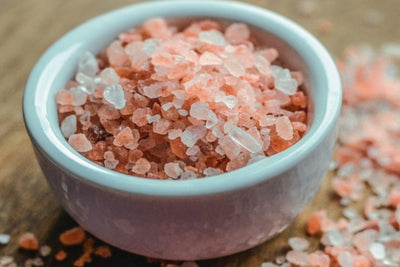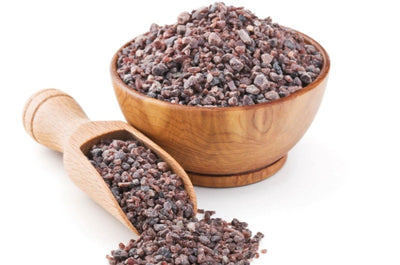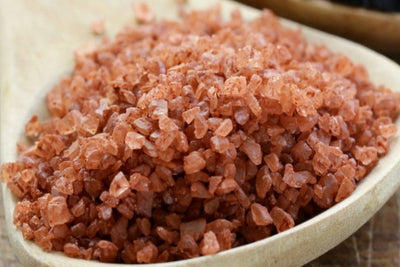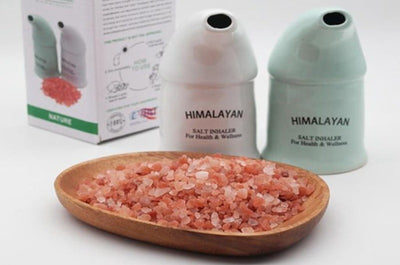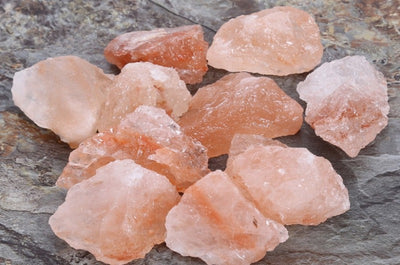Does Himalayan Salt Have Iodine?
Iodine in Himalayan salt
Himalayan salt comes from the lap of Khewra Salt Mine close to the Himalayas in Pakistan. Many people often claim that Himalayan salt is loaded with natural elements and minerals that are beneficial to your health.
The Himalayan salt is extracted by hand and minimally processed to deliver an unrefined salt that is additive-free. Considered to be more natural than regular iodized salt, the Himalayan salt also contains some levels of iodine.
We have a good selection of Himalayan salt be sure to visit our Himalayan salt collection
Himalayan salt is high in minerals as it is hand-extracted to preserve the natural elements. Himalayan salt is quickly replacing regular table salt in most restaurants and homes owing to its rich mineral content.
Himalayan salt has high levels of potassium, calcium, and magnesium which are known to offer a plethora of health benefits. The Himalayan salt also contains some levels of iodine in its natural composition.
However, the levels of sodium and iodine in Himalayan salt are lower than that present in your regular table salt. You can get some iodine from consuming Himalayan salt regularly. But people who are at risk of iron deficiency must look for other primary food sources or supplements of iodine.

Does Pink Himalayan salt have iodine?
Pink Himalayan salt is processed from the mines of the Punjab area of Pakistan. It is a kind of rock salt that is found near the majestic Himalayas.
Some people believe it to be one of the purest forms of salt available in the market. Pink Himalayan salt has almost the same chemical composition as your regular table salt. It contains around 98% of sodium chloride.
The rest of the Pink Himalayan salt contains trace minerals like magnesium, potassium, and calcium. These minerals add a pink tint to this salt.
Our body requires iodine for maintaining an efficient cell metabolism and thyroid function. Major iodine sources include dairy, fish, sea vegetables, eggs, and the like. Iodized salt is one of the most common sources of iodine.
Approximately 70%-80% of households across the globe use iodized salt in their regular diet. Pink Himalayan salt may have some level of iodine in its natural composition, however, it is much less than iodized salt.
If you have iodine deficiency you need to look for other sources of iodine as well. Consuming too much salt be it iodized or pink Himalayan may negatively impact your health.
If you are looking for a salt that will serve as your major dietary iodine source, then iodized salt will be your best bet. Pink Himalayan salt is often claimed as healthier than iodized salt but the former offers lower levels of iodine.

Is Himalayan salt good for thyroid patients?
When the thyroid glands produce more hormones than your required levels, you are most likely to suffer from a disease called hyperthyroidism.
The thyroid is nothing but a small gland present in your neck. The gland secretes and produces T4 and T3 thyroxine hormones. These hormones are responsible for regulating your heart rate and metabolism.
Hyperthyroidism affects each organ of your body. It severely compromises your muscle, heart, and bone health. It often exposes patients to congestive heart failure and strokes.
It is also linked to fertility issues and menstrual cycles in females. Untreated hyperthyroidism can impact both the fetus and mother during pregnancy. The hyperthyroidism condition is more prevalent in females and elderly people over the age of 60 years.
While there are many medications and surgeries available for thyroid patients, Himalayan salt is one of the most effective and natural treatments. It provides relief from the symptoms, prevents complications, and offers a speedy recovery.
You can either consume the salt directly by adding it to your food or use a Himalayan salt lamp to enjoy its therapeutic benefits. The negative ions released from the Himalayan salt lamp treats hypothyroidism, hyperthyroidism, and other allergens.
People claim that Himalayan salt also treats many respiratory conditions like sinus, asthma, and others.
Himalayan salt assures the optimal function of your thyroid glands. The Himalayan salt will bridge your iodine deficiency and helps to keep your hypothyroidism at bay. The minerals present in Himalayan salt help in the release and production of digestive juices.
Himalayan salt is rich in potassium and sodium which helps to deal with several hormonal imbalances and chronic fatigue in thyroid patients. It ensures a healthier thyroid and reduces the risks.
Dehydration is another risk factor in thyroid patients. Himalayan salt will maintain optimum levels of fluids in your body and ward off any signs of dehydration. Himalayan salt is also free of any chemicals which eliminate the chance of any side effects in thyroid patients.
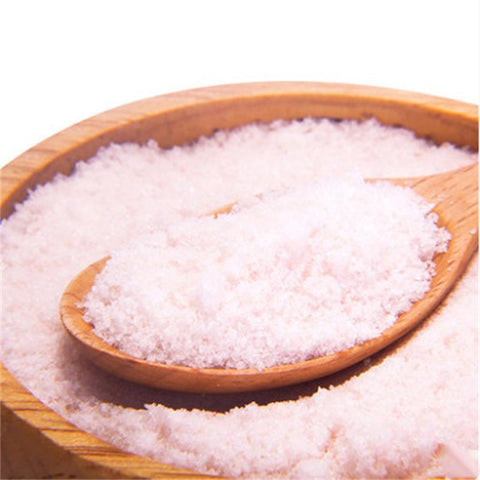
Which is better – Himalayan salt or iodized salt?
Iodized salt is produced through the evaporation of saltwater or the extraction of solid salt from salt mines. This salt undergoes a refining process to eliminate all impurities and other minerals except sodium chloride.
Anticaking agents and iodine are added in iodized salt to absorb moisture and prevent deficiency of iodine in consumers.
Pink Himalayan salt is minimally processed to retain the natural minerals and elements. These minerals are found in your regular table salt or iodized salt.
Both Himalayan salt and iodized salt mostly consist of sodium chloride. However, pink Himalayan salt comes with other trace elements and 84 additional minerals. The most common minerals present in Himalayan salt are calcium and potassium.
Himalayan salt also contains magnesium, iron, iodine, and others. However, iodized salt contains more iodine than Himalayan salt.
Most people claim that Himalayan salt is healthier than iodized salt owing to its rich mineral content. However, there is no scientific evidence to back it.
Summing Up
Himalayan salt contains a slightly less amount of sodium chloride than iodized salt. Himalayan salt also contains 84 minerals and trace other elements including iodine. People claim that Himalayan salt helps to reduce and treat the symptoms in thyroid patients.
However, it is recommended to consume this salt within a normal limit to ward off any side effects of excessive salts in your body.

